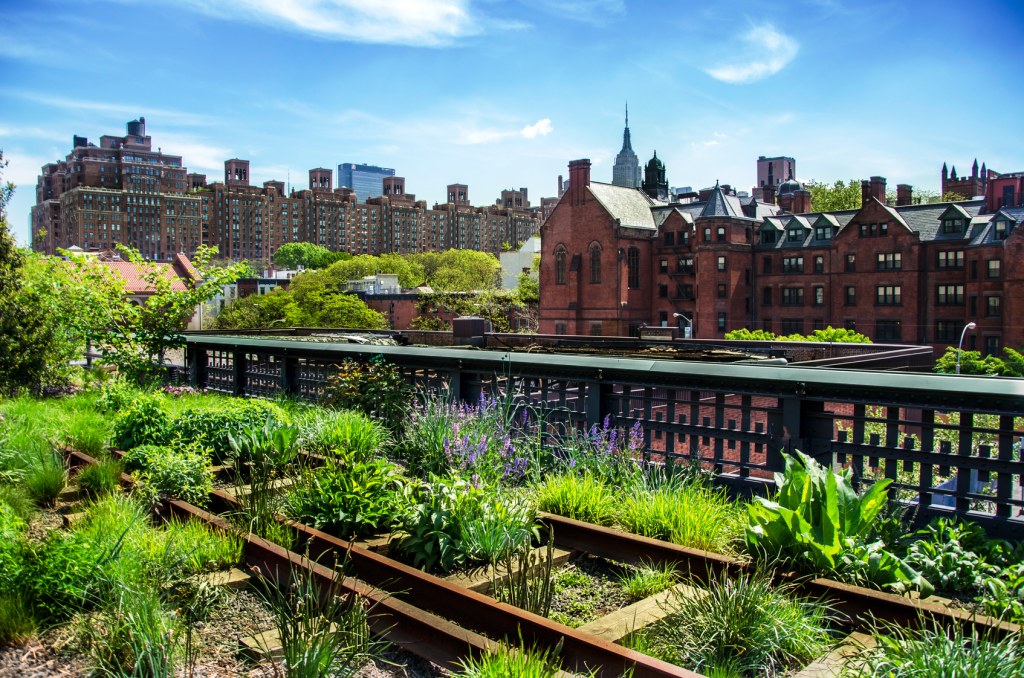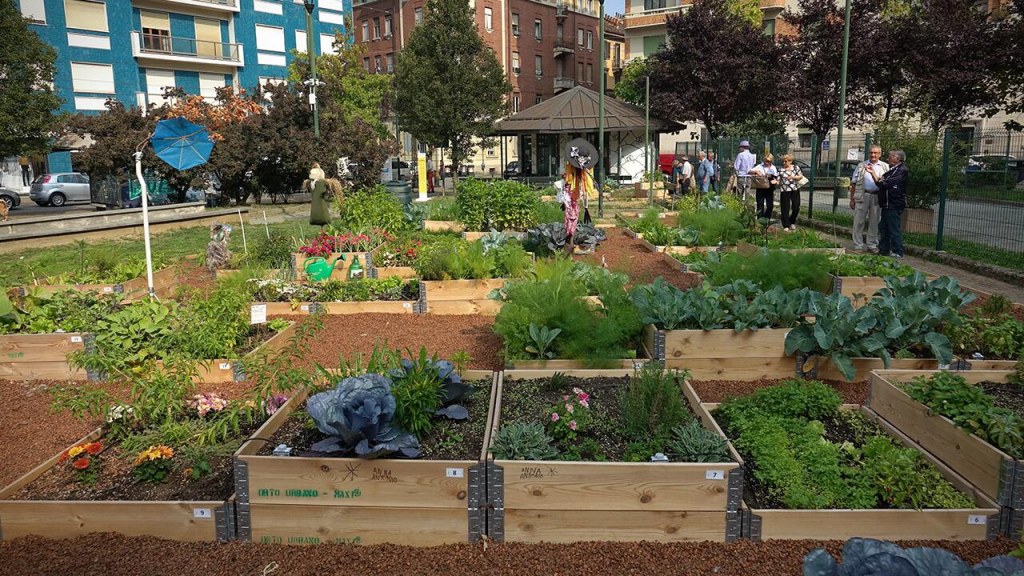Unleashing The Power Of Urban Gardening: Transforming Concrete Jungles Into Green Paradises!
Urban Gardening: Creating Green Spaces in the Concrete Jungle
Introduction
Dear Readers,
2 Picture Gallery: Unleashing The Power Of Urban Gardening: Transforming Concrete Jungles Into Green Paradises!


Welcome to our article about urban gardening, a growing trend that is revolutionizing how we interact with nature in urban environments. In this article, we will explore the concept of urban gardening, its benefits, and how you can get started. So, whether you are a gardening enthusiast or simply looking for ways to bring a touch of green to your city life, this article is for you!

Image Source: zukunftsinstitut.de
Now, let’s dive into the world of urban gardening and discover how it is transforming the way we connect with nature in our concrete jungles.
What is Urban Gardening?
🌱 Urban gardening, also known as urban horticulture or urban farming, refers to the practice of cultivating plants and growing crops in urban areas. It involves making use of small spaces such as balconies, rooftops, and community gardens to create green spaces amidst the bustling cityscape. Urban gardening can take various forms, including vertical gardens, rooftop gardens, and even indoor gardens.
🌱 The main objective of urban gardening is to foster a sense of community, improve food security, enhance the urban ecosystem, and promote sustainable living in cities.

Image Source: oekotest.de
🌱 Urban gardening is not limited to ornamental plants, but also includes growing vegetables, herbs, and fruits in urban environments. It allows city dwellers to reconnect with nature, reduce their carbon footprint, and enjoy the benefits of fresh, homegrown produce.
🌱 Now that we understand the essence of urban gardening, let’s explore who can benefit from this practice and why it is becoming increasingly popular.
Who Can Benefit from Urban Gardening?
🏡 Urban gardening is for everyone, regardless of their background or gardening experience. It provides an opportunity for individuals, families, and communities to come together and create green spaces in their neighborhoods.
🏡 Homeowners can transform their balconies, rooftops, or even windowsills into lush gardens. Apartment dwellers can make use of community gardens or indoor gardening techniques to bring nature indoors.
🏡 Schools and educational institutions can incorporate urban gardening into their curriculum, allowing students to learn about sustainability, biology, and nutrition first-hand.
🏡 Community organizations and local governments can use urban gardening as a means to promote social interaction, improve mental health, and enhance the overall livability of cities.
🏡 In short, anyone with a passion for nature, a desire to contribute to a greener environment, or an interest in growing their own food can benefit from urban gardening.
When and Where Did Urban Gardening Begin?
🏙️ Urban gardening has a long history dating back to ancient civilizations. In cities like Babylon and Rome, rooftop gardens and hanging gardens were common features, providing green spaces amidst urbanization.
🏙️ However, it wasn’t until the 19th and 20th centuries, with the rise of industrialization and urbanization, that urban gardening gained momentum. As cities grew larger and space became limited, people began to explore alternative ways of cultivating plants, leading to the emergence of urban gardening.
🏙️ Today, urban gardening can be found in cities worldwide, from New York City’s rooftop farms to Singapore’s vertical gardens. It has become a global movement, driven by the need for sustainable living and the desire to reconnect with nature in urban environments.
Why Choose Urban Gardening?
🌿 Urban gardening offers a multitude of benefits that make it an attractive choice for city dwellers:
1️⃣ Improved access to fresh, organic produce.
2️⃣ Reduction in food miles and carbon emissions.
3️⃣ Creation of green spaces, enhancing the aesthetic appeal of cities.
4️⃣ Promotion of biodiversity and urban ecosystems.
5️⃣ Stress relief and improved mental health.
6️⃣ Community building and social interaction.
7️⃣ Educational opportunities for individuals of all ages.
With these compelling reasons, it’s no wonder that urban gardening is gaining popularity worldwide.
How to Start Urban Gardening?
🌿 Now that we have explored what urban gardening is and its benefits, let’s delve into how you can get started:
1️⃣ Assess your space: Determine the available space you have, whether it’s a balcony, rooftop, or indoor area. Consider factors such as sunlight, access to water, and the weight-bearing capacity of your space.
2️⃣ Choose your plants: Select plants that are suitable for your space and climate. Consider factors such as sunlight requirements, temperature tolerance, and the available gardening season.
3️⃣ Prepare your soil: Ensure your soil is suitable for planting. If using containers, choose a high-quality potting mix. If gardening in the ground, test your soil’s pH and amend it if necessary.
4️⃣ Plan your layout: Design your urban garden to maximize space and aesthetics. Consider vertical gardening techniques, companion planting, and incorporating decorative elements such as trellises or hanging baskets.
5️⃣ Start planting: Follow the planting instructions for each plant, ensuring proper spacing and depth. Water your plants regularly and provide adequate nutrition through organic fertilizers.
6️⃣ Maintain and care for your garden: Regularly monitor your plants for pests or diseases and take appropriate action. Prune, trim, and harvest your plants as needed to promote healthy growth.
7️⃣ Engage with the community: Connect with other urban gardeners, join local gardening clubs or online communities, and share your experiences and knowledge.
Remember, urban gardening is a journey, and each step brings you closer to a greener, more sustainable lifestyle.
Advantages and Disadvantages of Urban Gardening
🌿 Like any practice, urban gardening has its advantages and disadvantages. Let’s explore them in detail:
Advantages:
1️⃣ Food Security: Urban gardening allows individuals to grow their own food, reducing dependence on external food sources and increasing food security.
2️⃣ Sustainability: By growing food locally, the carbon footprint associated with transportation and packaging is reduced, contributing to a more sustainable food system.
3️⃣ Health Benefits: Consuming fresh, homegrown produce is not only tastier but also more nutritious. Urban gardening encourages a healthier lifestyle by providing access to organic fruits, vegetables, and herbs.
4️⃣ Environmental Impact: Urban gardening promotes biodiversity, reduces soil erosion, and improves air quality, positively impacting the urban ecosystem.
5️⃣ Community Building: Urban gardening brings people together, fostering a sense of community and social interaction. It provides an opportunity for shared knowledge, skills, and resources.
Disadvantages:
1️⃣ Space Limitations: Urban gardening is often constrained by limited space, especially in densely populated cities. This can restrict the variety and quantity of plants that can be grown.
2️⃣ Time and Effort: Maintaining an urban garden requires regular care and attention. It may require time and effort to water, fertilize, prune, and protect plants from pests and diseases.
3️⃣ Potential Challenges: Urban gardens may face challenges such as limited sunlight, poor soil quality, and exposure to pollution. These factors can affect plant growth and productivity.
4️⃣ Knowledge and Skills: Successful urban gardening requires knowledge of plant care, pest management, and gardening techniques. Individuals may need to invest time in learning and acquiring these skills.
5️⃣ Initial Investment: Setting up an urban garden may require an initial investment in materials such as containers, soil, tools, and seeds. However, the long-term benefits often outweigh the initial costs.
Frequently Asked Questions (FAQs)
🌿 Here are some common questions about urban gardening:
1. Can I start an urban garden without any prior gardening experience?
Yes, urban gardening is suitable for beginners and experienced gardeners alike. Start small, gain knowledge through resources, and learn as you go.
2. How much time and effort does urban gardening require?
The time and effort required for urban gardening depend on the scale of your garden. Start with a manageable size and gradually increase as you gain experience.
3. What are some low-maintenance plants suitable for urban gardening?
Herbs like basil, rosemary, and mint are low-maintenance choices. Succulents and air plants are also suitable for indoor urban gardens.
4. Is urban gardening expensive?
Urban gardening can be done on a budget. Start with basic materials and gradually invest as your garden grows. Repurposing items like containers or using compost can save costs.
5. Can I practice urban gardening in an apartment building?
Absolutely! Many apartment buildings have community gardens, and indoor gardening techniques like hydroponics and vertical gardening can be implemented in limited spaces.
Conclusion
🌿 In conclusion, urban gardening is a powerful movement that allows us to reconnect with nature, improve our environment, and foster sustainable living in our cities. Whether you have a balcony, a rooftop, or a small corner in your home, urban gardening offers a way to create green spaces and enjoy the benefits of gardening.
🌿 So, let’s embrace urban gardening and transform our concrete jungles into vibrant, green oases. Start your own urban garden today and be part of this growing movement towards a greener, more sustainable future.
Final Remarks
Dear Readers,
Urban gardening is not just a passing trend; it is a way of life that has the potential to transform our cities for the better. However, it is important to note that urban gardening may not be feasible or suitable for everyone due to various factors such as space limitations, time constraints, or personal preferences.
Before embarking on your urban gardening journey, consider your own circumstances and make an informed decision. Remember to seek advice from gardening experts, join local gardening communities, and equip yourself with the necessary knowledge and skills.
Finally, we hope this article has inspired you to explore the world of urban gardening and discover the joy of creating green spaces in the heart of the city. Happy gardening!
This post topic: Gardens


